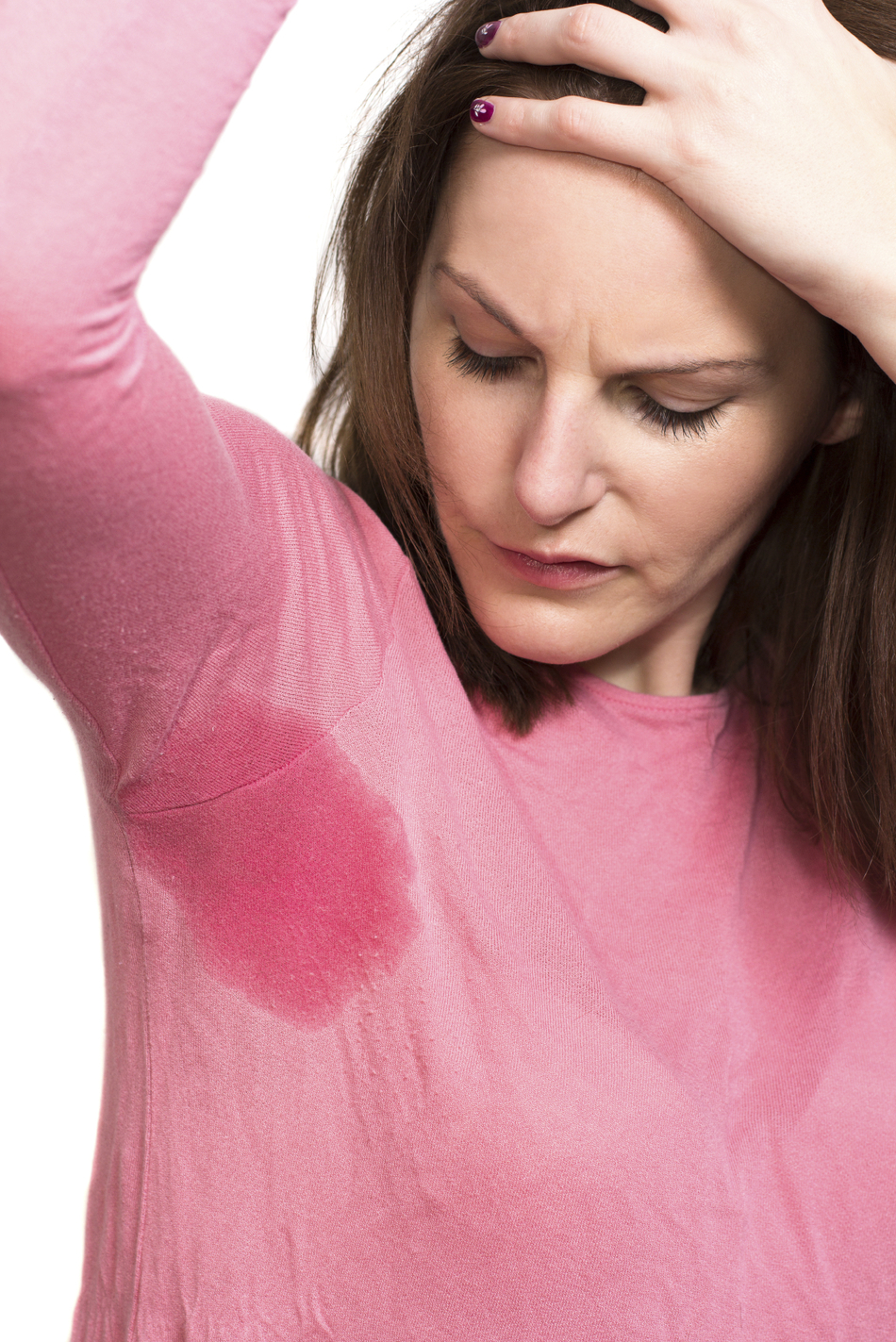Episode Transcript
Interviewer: Sweating. But not just sweating, walking up the flight of stairs and sweating like you just ran a mile, sweating. Is it normal? We'll find out next on The Scope.
Announcer: Questions every woman wonders about her health, body and mind. This is "Am I Normal?" on The Scope.
Interviewer: We're talking today with Dr. Kirtly Parker Jones. She is the expert in all things woman. I know sweating is normal, but is it normal to walk up a flight of stairs in 10 seconds and start sweating?
Dr. Jones: Well, my grandfather used to say that horses sweat, men perspire, and women are all of a glow. So women are very sensitive to sweating. Although in the past 20 or 30 years with the rise of women athletics, thanks to Title IX, it is okay for women to get sweaty.
Interviewer: It is okay to get sweaty.
Dr. Jones: It is okay to get sweaty. So if you're sweating, the question is, "Is it hot outside? Are you nervous? Are you exercising?" All of those are good reasons to sweat. Sweating is our way of cooling ourselves off. However, there are people who have conditions where they sweat too much. It's hard to quantify because here in Utah, you can sweat . . .
Interviewer: It's just hot all the time.
Dr. Jones: It's hot, but it's dry. So you can be sweating a fair bit and it kind of dries up. I went to visit my brother in Malaysia and I sweat off my arms. My arms sweat. So it depends on where you are. Now, there is a condition called hyperhidrosis. Now this fancy word means sweating too much.
Interviewer: Okay. I figured.
Dr. Jones: About 5% of people have it. It usually runs in families and it can be unexplained or sometimes it can be explained by medical conditions or medications you take. In the kind that runs in families, A, in the history it kind of runs in families: You have a sweaty family. And two, it usually starts after puberty. These are folks that just sweat a lot. There are people who sweat primarily from their hands and feet and there actually are medications that can help people not sweat so much from their hands and feet. When you sweat from your feet all day, that's kind of sloshing around in your shoes. And putting your hand out to shake a sweaty hand is just not cool.
Interviewer: No, it doesn't sound hygienic either.
Dr. Jones: No, no, no. So if you feel like you're sweating excessively, and this is new for you, it's important maybe to talk to your clinician because there are conditions like diabetes, there are conditions like hyperthyroidism, where your thyroid is overactive. There are conditions, such as heart disease, that can make you sweat too much. There are some medications that can make you sweat a lot. Some anti-depressants can do that. Some anti-hypertensives can do that.
There's another troublesome thing called nighttime sweating. So people who have night sweats, now this is not menopausal women, we'll talk about menopausal women in just a sec. But nighttime sweating, when people wake up just completely soaking their sheets and they're not menopausal women, that is a sign that you probably need to see the doctor.
Now, if you're walking up the stairs and it's 105 degrees outside, well good for you. You can decide whether you want to go for an antiperspirant, or deodorant or both to help you with your sweating.
Now, with menopause, women can get night sweats and hot flashes that make you sweaty. Some people just get red, but some people break out and sweat all over. This is something that is episodic. It may happen every 90 minutes, it can happen more often, it can happen in the middle of the night. We have some medium to excellent treatments for menopausal sweating.
Interviewer: So, ladies, if you're walking up the stairs and you're sweating, that might be normal. But any other time, if you're sweating too much or all the time, that's a sign that it's not normal and you need to go see a doctor.
Dr. Jones: Right. This is a time to see your physician because you might be hyperthyroid, you might have diabetes, you might have a heart condition. So if you feel like you're sweating and your heart's pounding, this is a problem and you really need to see your clinician.
Announcer: TheScopeRadio.com is the University of Utah Health Sciences Radio. If you like what you heard, be sure to get our latest content by following us on Facebook. Just click on the Facebook icon at TheScopeRadio.com
